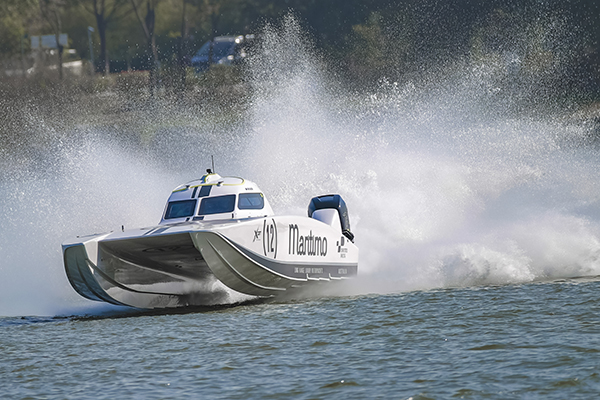
The minimum length for an XCAT is 7.6 metres with a minimum weight of 1755kg weighed after the race finish, with the maximum being 10metres long, boats above 7.6 metres have to carry additional weight with a ratio of 110kg per meter or part thereof .
Canopies
The canopy or cockpit is a reinforced crew containment area, that is built as in integral part of the hull and deck. It is designed to withstand the forces of the water impacting the canopy from all sides at speeds in excess of 110mph. Whether it be a simple roll over in a turn or a high speed flip over or cart wheel down the straight. All boats are fitted with two escape hatches, one directly above the drivers for normal use if the boat lands upright and one at the drivers feet in the tunnel, so that if the boat lands upside down the crew can exit easily, or safety personal can start the rescue mission with a clear view and easy access to the pilots.
The pilots are strapped into the racing seats, using a racing style seat belt harness system with quick release latches, so they can exit or be rescued with ease. All pilots go through a thorough safety training program, including been put into a dummy cockpit that is immersed in the water upside down, they then must release themselves, open the hatch and swim to safety without panicking, and with confidence before they are accepted for racing.
Engines
Non Environmental Protection Agency type engines (Non EPA), can be up to 3000cc with a maximum of 300 horsepower each. Although this is open to all manufactures the only engine homologated at this time is the Mercury 2.5 race engine, and has been used successfully for many years without competition. Engines may be modified to the specifications on registered homologation file
Environmental Protection Agency Engines (EPA) Up to a maximum of 300hp are allowed however no modifications are permitted,